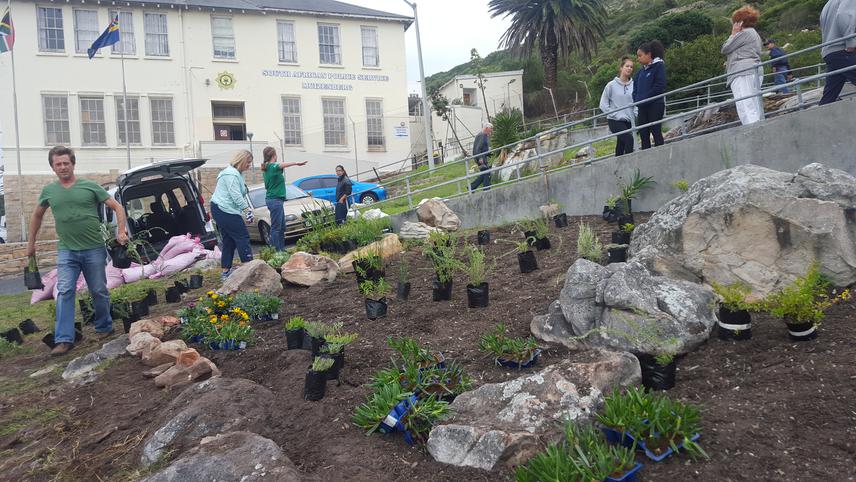Leif Petersen
Other projects
20 Sep 2011
A Pilot Exercise of Biodiversity Mapping in Cape Town’s Illicitly Harvested Habitats for Future Conservation Reference
The project aims to establish two new open access, medicinal street gardens in Cape Town, along with the installation of a toilet at the Hillview Community Nursery and a preliminary survey of residents who harvest from the gardens. Additional aims are the strengthening of positive relationships between Rasta bush doctors and conservation stakeholders, enhanced local biodiversity, investment in nursery infrastructure and local employment in a socioeconomically marginalized neighbourhood, along with the development of ecotourism connected with indigenous knowledge practitioners

Muizenberg SAPS donated plants.
Originating in Seawinds, an area in Cape Town with high unemployment and many social ills such as gangsters, drug abuse and violence, the original Herbanisation garden was established on a pavement with open access to local healers and the community. We wanted to connect, heal and green the community through plants.
To date, the Seawinds Herbanisation street gardens have grown to total approximately 2,000 plants, most of which are indigenous and all of which have medicinal applications. A number of community members and resident Rasta-Khoi bush doctors have been harvesting from the open-access gardens. The establishment of the street gardens has occurred at a number of orchestrated planting events designed to bring bush doctors, conservation officials, community members and volunteers together to work towards a common goal.
Herbanisation has already resulted in ground-breaking engagement between Khoi/Rasta bush doctors, conservation bodies and local botanical organisations. In addition, the project is strengthening linkages between park activities and urban conservation efforts, making local nature a key driver of urban renewal efforts. Many Seawinds residents and local traditional healers harvest from the Herbanisation street gardens in order to treat themselves and their families. Thus, Herbanisation is strengthening the linkages of local people to their indigenous roots and helping ensure the continued practice of local ecological knowledge. This contributes to the health and wellbeing of the local community and empowers individuals to take their health into their own hands and to feel proud of their role as indigenous knowledge bearers.
The next phase of the project will extend and strengthen the successes to date by growing the Herbanisation street garden network to new locations in Cape Town. The establishment of at least two new street gardens, totalling approximately 1,000 indigenous medicinal plants, will contribute to the livelihoods of local traditional healers/herbalists, green streetscapes, bolster local biodiversity and expand the scope of community engagement with indigenous plants and associated knowledge. Through an approach utilising experiential peace-making, planting and maintenance activities will bring together diverse stakeholders in the stewardship of biodiversity in Cape Town and allow a non-traditional conservation audience to build relationships with formal conservation individuals and organisations.